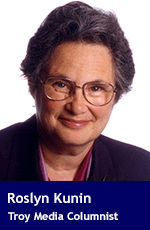Nothing will change unless adequate resources are available and an effective system of inspection and enforcement is in place
 One of the hard lessons we learned from the pandemic was that, in many cases, our long-term care homes were not providing an acceptable standard of care for the very dependent Canadians in their residences.
One of the hard lessons we learned from the pandemic was that, in many cases, our long-term care homes were not providing an acceptable standard of care for the very dependent Canadians in their residences.
Tragically, many died from Covid, especially before vaccines were available and widely distributed. Many others not able to look after even their most basic needs suffered from serious neglect.
The good news is that we, as Canadians, decided this was not good enough, and we had to do something about it. The federal government is now talking about setting new and better standards for the operation, quality, and design of long-term care homes. The provinces and territories are involved since these homes fall under their jurisdiction.
The Health Standards Organization has recently released new and improved requirements for the care of residents in these homes. One such requirement is that residents receive at least four hours of direct care daily. No one would disagree with such a standard, but implementing it is another matter.
 Photo by CDC |
| Related Stories |
| New business provides services to seniors living alone
|
| Seniors prefer home care over institutionalization
|
| Covid-19 pokes the final hole in leaky long-term care boat
|
One major reason for the serious lack of care during the pandemic was insufficient staff to look after the residents. Before a vaccine became available, staff had a justifiable fear of contracting Covid themselves, leading to many no-shows. While there is now a vaccine to allay those fears, staff shortages persist.
As in many other occupations in Canada right now, the demand for care workers exceeds the available supply leading, which has led to many vacant positions. The situation is made worse because pay levels are low for these essential jobs. The Health Standards Organization recognized the need for better pay for workers when it released the new standards.
Passing better standards is necessary but insufficient to alleviate the problem. In many cases, adopting the standards is voluntary, not mandatory. Even where operators want to implement the standards, this wish will not bring enough willing and able personnel to do the required extra work. Nor will it generate the additional funds to pay new and existing staff at the current wage level, let alone at the higher pay grade that the Health Standards Organization and others recognize is needed.
As noted above, the federal government strongly favours the improvement of long-term care that would stem from implementing requirements such as a minimum of four hours of daily care for each resident.
But it recognizes the reluctance of some of the home operators to implement the new requirements and the challenges it faces because of provincial and territorial differences.
While the federal government has stated that it would pass legislation to ensure safety in long-term care facilities, such a law without additional measures would be as effective as passing a law against the common cold.
Even if Parliament declares that all operators of care homes ‘shalt provide four hours of individual care a day for all your residents’, nothing will change unless and until adequate human and financial resources are available and an effective system of inspection and enforcement is put in place.
If something is important enough to Canadians to require legislation, we must ensure that conditions are in place to enable the law to be known and obeyed. Otherwise, our excellent and well-meaning standards and legislation are just wishful thinking.
Dr. Roslyn Kunin is a public speaker, consulting economist and senior fellow of the Canada West Foundation.
For interview requests, click here.
The opinions expressed by our columnists and contributors are theirs alone and do not inherently or expressly reflect the views of our publication.
© Troy Media
Troy Media is an editorial content provider to media outlets and its own hosted community news outlets across Canada.

